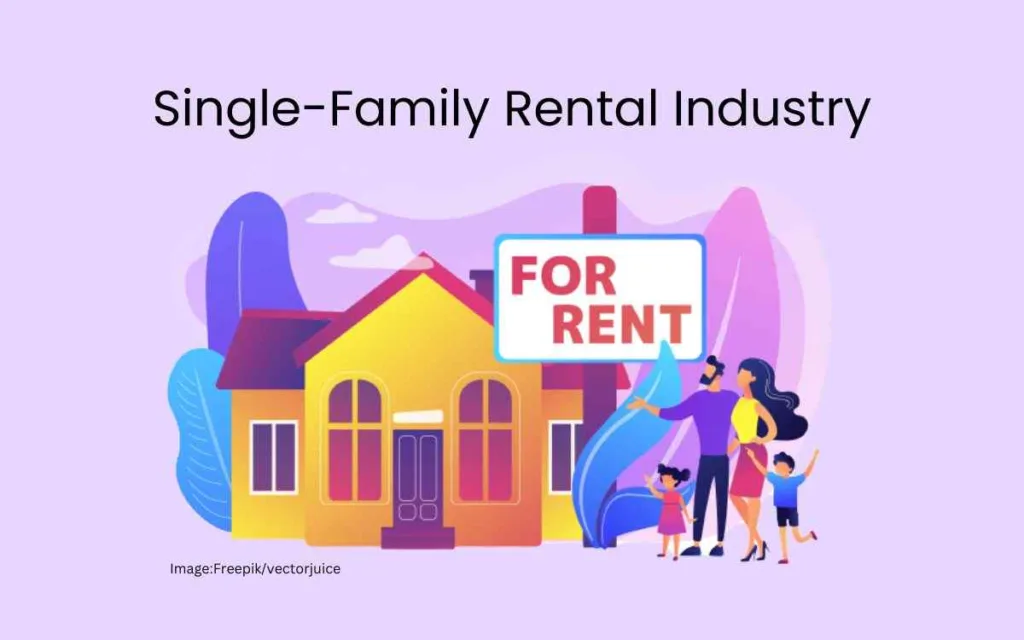How Wall Street Is Ruining Your Neighborhood
You may think that buying a home in a nice, middle-class neighborhood is a safe and smart investment.
But what if you find out that your neighbors are not homeowners, but renters who live under the control of a corporate landlord?
And what if you discover that these landlords are actually Wall Street investors who bought up most of the homes on your block with cash, driving up prices and making it harder for you to sell or refinance your own home?
>>This is not a hypothetical scenario.
This is happening right now in many communities across the country, especially in fast-growing Sun Belt cities like Charlotte, Atlanta and Phoenix.
In this post, we will explore how Wall Street has come for the starter home, what are the pros and cons of single-family rentals, and how homeowners are fighting back to preserve their neighborhood.
We will also share some tips on how to avoid falling into the trap of buying a home that is owned by a Wall Street landlord, and how to protect your rights and interests as a homeowner.
If you are thinking of buying a home in the near future, or if you already own one and want to know more about the market trends and challenges, this post is for you.
Read on to learn more about the hidden dangers of Wall Street’s invasion of the starter home market, and how you can take action to safeguard your investment and your community.
The Rise of the Single-Family Rental Industry
The single-family rental industry emerged after the 2008 foreclosure crisis, when large investors scooped up distressed properties in the nation’s hardest-hit communities.
During the pandemic-era housing market, these investors saw their profits soar as rents increased by double-digit percentages and home prices rose at their fastest clip in U.S. history.

Wall Street investors turned the single-family rental home into a powerful investment tool by bundling multiple purchases into portfolios available for investment.
Among the investors are pension funds and mutual funds, which see it as a good bet. They want exposure to the U.S. housing market.
They think these homes are going to be worth more in the future. And they like the income.
The Impact of Single-Family Rentals on Middle-Income Neighborhoods
Investors were largely uninterested in wealthier enclaves.
Instead, they targeted middle-income neighborhoods, many with larger Black and Latino populations.
>>>These neighborhoods offered affordable homes with spacious yards and amenities, such as pools, tennis courts and clubhouses.
However, these neighborhoods also became less accessible to first-time buyers, who overwhelmingly rely on mortgages.
Across the United States, more than a third of all sales in 2022 were in cash.
Many of those houses went to families and individuals, but investors’ paying cash accounted for nearly 10 percent of home purchases that year.
>>>Cash offers from investors are appealing to sellers.
A homeowner does not have to stage the house, wait for an appraisal and inspection or watch a sale fall apart if the buyer can’t get a mortgage.
But cash offers also create a disadvantage for buyers who need financing. They often lose out in bidding wars or get priced out of the market altogether.
The Pros and Cons of Renting a House from a Corporate Landlord
A rental lowers the barrier of entry into a neighborhood. If you can’t afford a down payment, or don’t have strong enough credit for a mortgage, a “For Rent” sign changes the equation.
More Black households move into white neighborhoods when the share of rentals grows, increasing diversity.
Renting a house from a corporate landlord also offers some benefits over renting an apartment or a condo which are;
- You get more space and flexibility, especially if you work from home or have children.
- You get access to the neighborhood’s amenities and services.
- You don’t have to worry about maintenance or repairs.
But, >>>renting a house from a corporate landlord also has some drawbacks. They are;
- may face higher rents and slower repairs than renting from an individual landlord.
- may have less privacy and security than owning your own home.
- may feel unwelcome or discriminated by some homeowners who blame you for neighborhood ills.
- may miss out on the opportunity to build equity and generational wealth through homeownership.
The Homeowners’ Resistance to Investors
Some homeowners in middle-income neighborhoods have tried to limit the number of rentals in their community, fearing that investors would lower their home values and erode their sense of belonging.
They have campaigned to amend their homeowners association bylaws to cap the percentage of rentals allowed and to require homeowners to live in their home for a year before renting it out.
However, these efforts face some challenges and criticisms.
They need a supermajority vote from homeowners to pass, which becomes harder as investors own more homes.
They may also violate fair housing laws or state regulations that prohibit discrimination based on source of income or occupancy status.
And they may alienate some homeowners who want to rent out their homes for personal or financial reasons.
What You Can Do About It
If you are concerned about Wall Street’s impact on your neighborhood, here are some steps you can take:
- Educate yourself about the single-family rental industry and its practices. Learn who owns the rentals in your area and how they operate.
- Advocate for affordable housing policies and programs that support first-time buyers and low-income renters. Support local organizations that provide housing counseling, financial assistance and legal aid.
- Communicate with your neighbors, both owners and renters, and build community ties. Welcome new residents, organize events and activities, and address issues together.
- Negotiate with your landlord or seller if you are renting or buying a house from a corporate landlord. Ask for fair rents, reasonable repairs and flexible terms. Seek professional help if you encounter any problems or disputes.
Wall Street may have come for the starter home, but you can still make your neighborhood your home.






